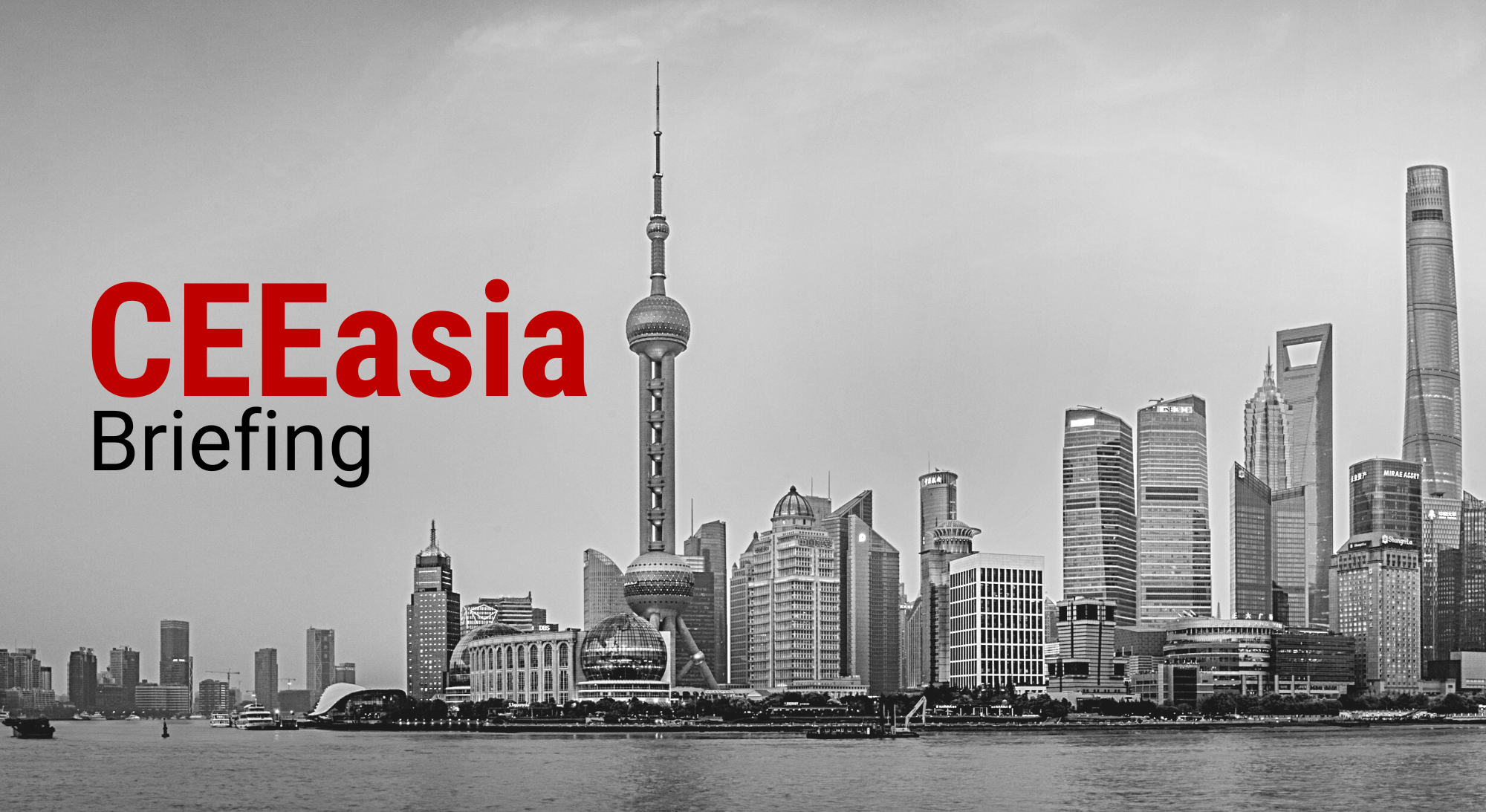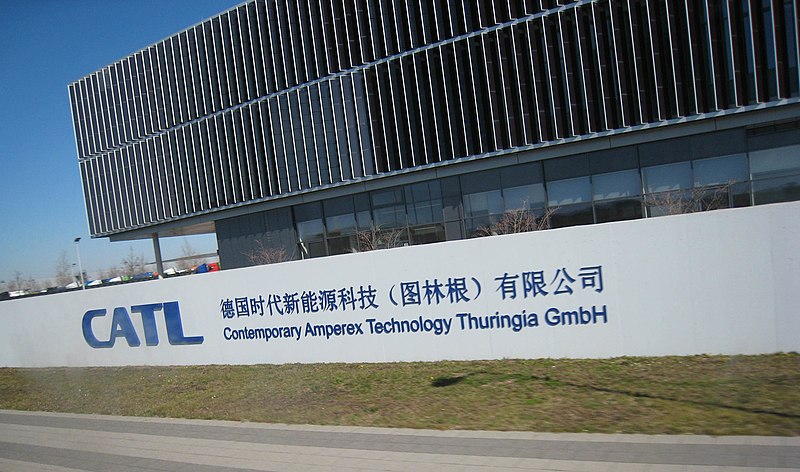Welcome to the 35th issue of the #CEEasia Briefing.
In this issue we dissect the following topics:
- Hungary’s response to China’s overseas police service stations
- South Korea’s arms sales to Europe
- Taiwan-Czech-Ukraine Forum in Taipei
If you like what you see, please forward this message to your friends and colleagues who can subscribe here.
Do you need to know more about East Asia? Don’t hesitate to shoot us a message about custom analysis tailored to your needs.
1. Hungary’s response to China’s overseas ‘police service stations’
What’s going on? Following the widely publicized report by the human rights NGO Safeguard Defenders about Beijing’s practice of transnational policing, several governments launched investigations into the so-called ‘police service stations’ run by individual Chinese provinces in their respective countries. Whereas the Czech government confirmed its investigation into the stations in Prague, the Hungarian government denied the very existence of such stations in Budapest, thus contradicting the findings of the report, according to which all the V4 capitals (except Warsaw) host at least one such station.
Going deeper… A similar response came from Serbia, where the ‘police service station’ in Belgrade was found to facilitate a forced return to Beijing of a Chinese national back in 2018. Moreover, whilst in both countries, lawmakers from opposition parties brought up the issue of these stations several times (with the Hungarian MP Márton Tompos even visiting and filming the location of such a station in Budapest), the two governments continue to remain silent on or deny the issue.
This means… The Hungarian and Serbian positions are not surprising, considering their governments’ continuing close ties to China. And while their closeness is unlikely to chance anytime soon, the police facilities are toning down their public presence, most likely due to the increasing public and media scrutiny. Most recently, the police facility has removed a sign in Budapest identifying the station following Tompos’ visit.
Further reading:
RFE/RL: Reports of China’s Overseas ‘Police Stations’ Spark Controversy, Denial in Hungary and Serbia
FT: China’s offshore ‘police service stations’ spark European alarm
Safeguard Defenders: 110 Overseas – Chinese Transnational Policing Gone Wild
2. South Korea’s arms sales to Europe
What is going on? In July, Poland signed a $5.8 billion blockbuster contract for tanks, fighter planes, and rocket launchers with two South Korean companies. This comes as European capitals look to restock their warehouses after months of sending their military equipment to war-torn Ukraine. The agreement includes 980 K2 Black Panther tanks, 672 K9 self-propelled howitzers, and 48 FA-50 fighter planes expected to begin by the end of this year.
Going deeper… Concerns about the capabilities of Europe’s defense industrial base are long-standing, with many NATO allies relying heavily on imports of US weapons and equipment while concentrating their industrial capacity elsewhere. South Korea’s defense industry, on the other hand, has long built weapons and military equipment intended to be compatible with American gear, which makes it an attractive option for NATO countries looking to rearm quickly and cost-effectively. The Northeast Asian country is currently the world’s eighth-largest defense exporter and has seen exports shoot up 177% between 2016 and 2021. Its ambition is to reach the top four global weapons suppliers, challenging the USA, Russia, and France for contracts across the globe.
In addition… In a further sign of NATO’s rising focus on South Korea, the alliance recently announced opening a South Korean diplomatic mission to NATO in Brussels. It is likely to help Allied leaders strengthen economic cooperation and start a dialog with the Indo-Pacific partner to tackle cross-regional challenges and shared security interests. The importance of the Indo-Pacific region for the Alliance reflects NATO’s New Strategic Concept since tensions in the region have an impact on Euro-Atlantic security.
This means… In case the supply of weapons arrives as promised, CEE is now more likely to look for a quick turnaround in Seoul rather than being stuck in a years-long holding pattern with the US defense industry, which is already busy with internal demands and its own existing foreign deals. After all, South Korean defense firms have long been active in Europe, selling mobile howitzers and small arms to several countries over the past half-decade, although those deals have paled compared to Poland’s recent blockbuster contracts.
Further reading:
Reuters: Poland buy S. Korean rocket launchers after tank, howitzer sales
POLITICO: Better call Seoul: U.S. watches nervously as Europe turns to South Korea for weapons
NATO: Alliance agrees to Republic of Korea’s Mission to NATO
3. Taiwan-Czech-Ukraine Forum in Taipei
What’s going on? On October 28th the European Values Center for Security Policy (EVC), a Prague-based think tank, organized the Taiwan-Czech-Ukraine Forum in Taipei. The event was, among others, addressed by the Deputy Chair of the Committee on European Affairs in the Lithuanian parliament and Taiwan’s Deputy Minister of Foreign Affairs.
Going deeper… The EVC established its office in Taipei intending to facilitate political ties between Taiwan and the Czech Republic. Its director Jakub Janda confirmed that the Taiwan-Czech-Ukraine Forum was part of further efforts by the think tank to foster exchanges on defense and security between Taiwan and Europe more broadly. Among the forum’s highlights was some participants’ advocacy for a ‘strategic clarity’ towards Taiwan, a marked shift from the established tradition of ‘strategic ambiguity’. Others urged Taiwan to reduce its trade dependence on China, with 42% of Taiwan’s exports flowing to, and 22% of its imports originating from, China in 2021 (according to the data by Taiwan’s Bureau of Foreign Trade).
This means… The forum extended the momentum of CEE-Taiwan relations by further strengthening the ties and offering vocal support and a diplomatic lifeline to Taipei. In recent years some CEE countries might have indicated the opposite of the US attitude – strategic clarity. However, it remains debatable if other countries will follow Lithuania’s decisive steps against Beijing or stay with mostly-parliamentarian support. Nevertheless, lessons learned in the Ukraine war have sparked off a debate in expert circles urging Taiwan to prepare for a possible Chinese invasion (by stockpiling weapons and training civilians and reservists) well ahead of time.
Further reading:
Taipei Times: Never accept China’s proposals: ex-Ukraine lawmaker
CEIAS: EU-Taiwan Tracker
Quick takes on CEEasia developments
CHINA | China is continuing with its diplomatic activities in Central and Eastern Europe (CEE). The Special Representative of the People’s Republic of China for Cooperation between CEE and China visited Slovenia to meet with the State Secretary Samuel Žbogar, discussing a wide range of topics, including the CEEC-China Initiative (14+1), EU-China relations and security issues in the Asia-Pacific region.
TAIWAN | Eight IPAC (Inter-Parliamentary Alliance on China) members made a four-day visit to Taiwan, meeting with President Tsai Ing-wen, Minister of Foreign Affairs Joseph Wu, and a number of other key government officials. The delegation was led by Reinhard Butikofer and included delegates from Belgium, Britain, the Czech Republic, and Germany, among others.
JAPAN | The EU is setting its eyes on Japan. The two sides held their second High-level Economic Dialogue, discussing and exchanging good practices in trade and sustainable finance. This includes cooperation in the areas of economic security, data flows, new economic policies fostering domestic economies, increasing synergies in energy projects, transition finance, taxonomy, and carbon neutrality by 2050.
SOUTH KOREA | Economic ties between South Korea and Hungary are likely to expand further. The two sides met recently to sign an agreement to encourage investment and trade development. This will probably lead to more cooperation with Samsung SDI, SK Innovation, W-Scope, and other Korean companies related to the electric car industries creating more than ten thousand jobs for the Hungarian automotive industry.







